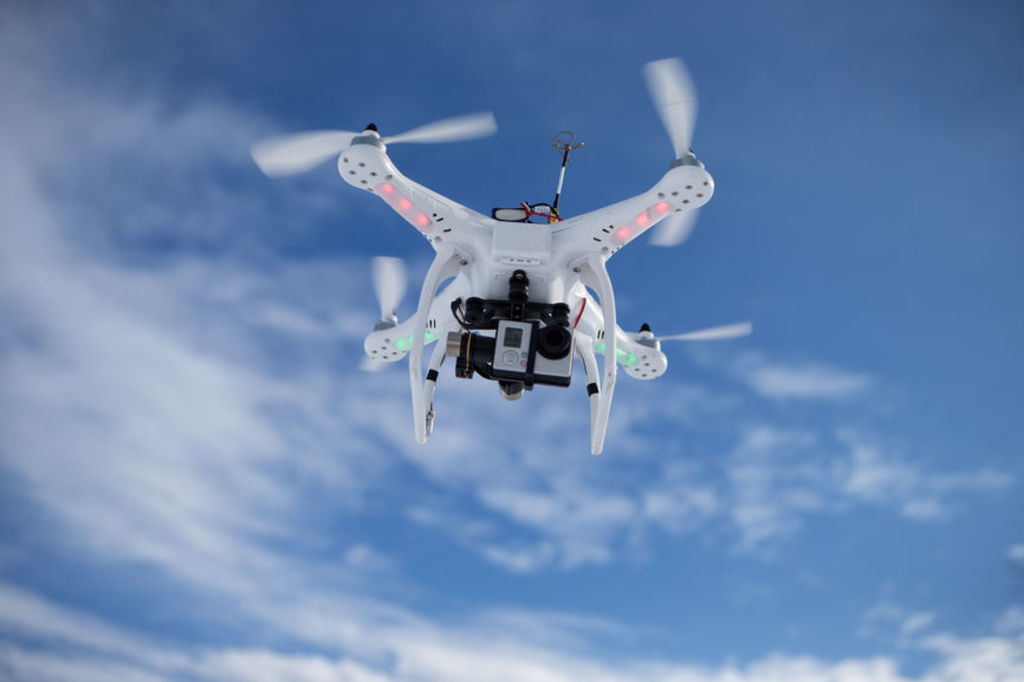The Queen Bees Flying Program at Melbourne Girls Grammar

Since it first opened its door in 1893, Melbourne Girls Grammar has been on a mission of “empowering tomorrow’s women”.
One way in which the Anglican school is doing this is by placing a firm focus on innovation, particularly technology-based learning and skills.
“We are future-focused and committed to inspiring our Grammarians and equipping them with the values, knowledge and skills to be ready to make their mark on the world,” says principal Dr Toni Meath.
Supporting this, the school has a strong STEM program that builds competencies in solving design, systems and computational problems.
“Our program fosters budding futurists who are enamoured by what could be, and who are excited to be an enterprising part of making their visions of the future become a reality,” says Ivan Carlisle, director of STEM and a former engineer.
One of the most popular aspects of STEM at the school is drone technology. Students in years three and four participate in the Queen Bee Flying Program.
Last year, it gained national recognition and earned Melbourne Girls Grammar a place in the list of Australia’s “most innovative schools”.
Students learn how to operate indoor drones and work towards obtaining the school’s own version of a drone licence. The program also builds electronic and computing programming skills. The drone program is also extended to older girls at the school as part of the school’s Careers Inspiration initiative.
Melbourne Girls Grammar has partnered with the Institute for Drone Technology to provide students in years nine to 12 with an opportunity to complete their Remote Pilot Licence (RePL).
The qualification is certified by the Civil Aviation Safety Authority and allows the licence holder to fly drones for commercial purposes. Last year, six students attained their licence after studying aviation theory and regulations, learning how to professionally pilot drones, and passing a tough theoretical exam plus a practical flying exam.
“Melbourne Girls Grammar has shown great leadership in fostering a deep interest in STEM among the girls,” said Dr Joel Spencer, chief executive and co-founder of The Institute for Drone Technology. “The skill to operate a drone will be a great advantage to these girls as they move forward with their studies, their lives and their careers.”
Year nine student Sophie Paterson, 14, became the youngest female remote pilot in Australia. The students who earned their RePL said it challenged preconceived ideas that aviation was a male domain. Some also said they intended working with drones in their future careers.
“The percentage of female pilots at Australia’s major airlines ranges from about 4 to 9 per cent, and women make up as little as a quarter of the total STEM workforce. Soon, I aim to get my first commercial job involving drones, which could possibly extend into a full-time career,” said year 11 student Olivia Perkins. Carlisle says the school will continue to work with drone technology.
“While gender imbalances do persist in some areas of STEM, our students at Melbourne Girls Grammar are critically reflective of this reality and are empowered to have the confidence to pursue what they are passionate about,” he says.
“Experiences such as the RePL reinforce that attitude for our students that they can do anything that they set their minds to.”
Sign up for the best of Domain Review in your inbox each week
We recommend
We thought you might like
States
Capital Cities
Capital Cities - Rentals
Popular Areas
Allhomes
More







